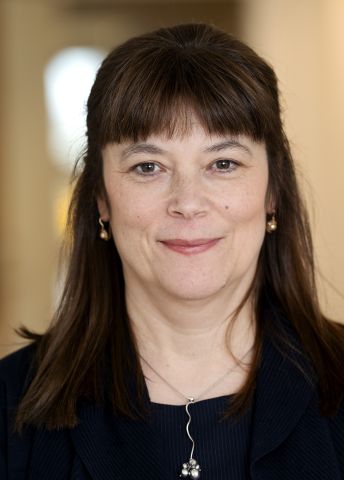
Tünde Fülöp
Professor of physics
Wallenberg Scholar
Institution:
Chalmers University of Technology
Research field:
Theoretical plasma physics, focused on magnetic fusion and laser-produced plasmas.
Professor of physics
Wallenberg Scholar
Institution:
Chalmers University of Technology
Research field:
Theoretical plasma physics, focused on magnetic fusion and laser-produced plasmas.
Creating and controlling beams in plasmas
Energy research, space physics and materials science – high impact applications are many in plasma physics, the science of hot ionized gases. As a Wallenberg Scholar, Tünde Fülöp will focus on two areas: magnetic fusion plasmas and laser-produced plasmas.
Tünde Fülöp leads a research group that is exploring physical phenomena in plasma physics. The systems in focus are characterised by large variations in density and temperature, and where small-scale and large-scale processes couple to affect each other. This requires models consisting of various degrees of sophistication: from detailed computationally expensive ones, to simplified but fast models that work in fewer dimensions.
Tünde Fülöp plans to develop a toolset to predict, control and optimize electron acceleration and radiation in laboratory plasmas. This will be used to search for optimal parameters controlling the electron beam formation and system properties.
“Controlling high-energy electrons is crucial in a fusion reactor, where the fuel is an ionized plasma heated to approximately 100 million °C. If control is lost, a beam of runaway electrons can form, similar to a welding flame, that can damage the reactor wall. The goal is to identify methods that can avoid, or at least control, the harmful effects of runaway electrons in fusion plasmas. The results of this work could be implemented immediately, in current experiments as well as in guiding preparations for planned fusion power plants” says Tünde Fülöp.
Laser-produced particle and light sources
The other area Tünde Fülöp wants to explore is laser-produced particle and light sources. The resulting short pulses enable completely new applications, for example in particle acceleration. But the efficiency, stability and characteristics of these sources need to be improved. Tünde Fülöp therefore aims to design optimal methods that will enable the tailoring of ultra-short electron and light pulses in an efficient and stable way.